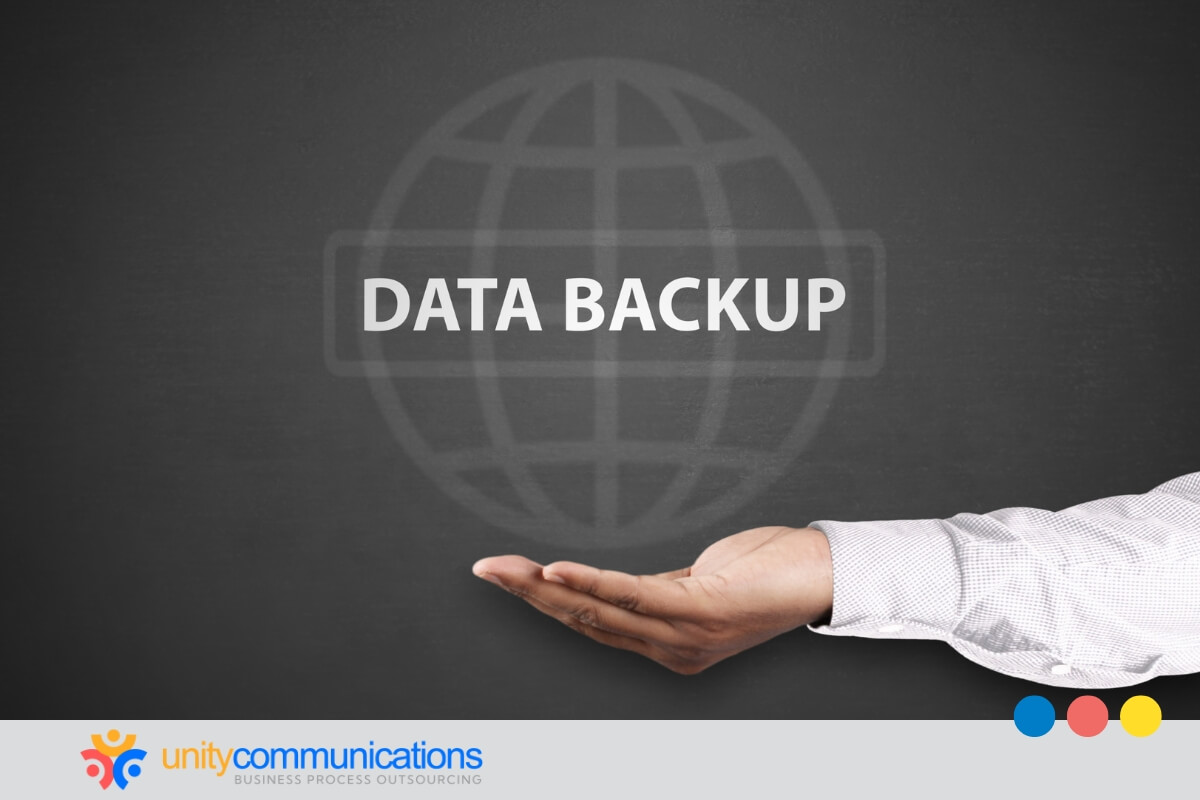IN THIS ARTICLE
Table of Contents
Companies face an array of disruptions, ranging from natural disasters to technological failures and market volatility. Business continuity planning (BCP) is critical in navigating these uncertainties with minimal operational impact.
One often overlooked yet essential component in this process is business process outsourcing (BPO). This strategy allows companies to bolster their resilience, ensuring critical operations continue seamlessly despite disruption.
Keep reading to explore the pivotal role of BPO in business continuity planning, from providing operational flexibility and scalability to maintaining specialized functions during crises.
Role of BPO in business continuity planning

Business continuity planning is a strategic process that ensures your organization can continue operating during and after a disruptive event. It involves identifying potential risks—natural disasters, cyberattacks, system failures, or supply chain disruptions—and developing a comprehensive plan to mitigate their impact.
BCP focuses on maintaining critical functions, minimizing downtime, and recovering quickly. It enables your business to serve customers, protect assets, and maintain its reputation even during unforeseen challenges.
BCP is necessary because it safeguards your company’s long-term viability. Disruptions can have far-reaching consequences. Without a solid continuity plan, you risk financial losses, operational shutdowns, and damage to customer trust. Some reports say companies experience a 5%–20% loss in production due to downtime.
What is BPO’s role in business continuity planning? It helps maintain essential operations during disruptions. BPO partners often have robust disaster recovery and redundancy measures, which allow businesses to maintain service levels despite interruptions. Lastly, BPO enhances the ability to update and adapt continuity plans.
Here’s a closer look at the role of BPO in business continuity planning.
Continuous monitoring and proactive management
The role of BPO in business continuity planning involves continuous monitoring and proactive management. These help you stay prepared for disruptions and mitigate risks in real time. BPO providers often operate across multiple industries and regions, giving them access to advanced monitoring tools, technology, and industry insights to anticipate threats.
They continuously track key performance indicators, system health, and market trends to detect vulnerabilities early. By identifying potential disruptions—whether in information technology (IT) systems, supply chains, or call centers—BPO providers can act before these issues escalate into more significant problems.
To manage this function, BPO providers implement 24/7 monitoring systems that track critical business operations. They use advanced analytics and artificial intelligence to flag anomalies, such as system downtime, security breaches, or spikes in customer demand. A proactive approach allows you to resolve issues quickly before they hurt operations.
Additionally, BPO providers regularly test business continuity plans through simulations and audits to keep response strategies effective and current. They also collaborate closely with client companies to update these plans as new risks emerge, providing ongoing management and fine-tuning to promote resilience during challenging times.
Crisis response and disaster recovery
The role of BPO in business continuity planning also involves minimizing disruptions to business functions during emergencies. BPO providers have disaster recovery plans and response protocols that allow them to quickly adapt and maintain business operations in crises.
BPO firms manage crisis response by having dedicated teams trained in emergency response and contingency planning. These teams are responsible for activating pre-defined recovery plans, communicating with stakeholders, and restoring critical processes quickly.
Additionally, BPO providers utilize data backup systems and redundant infrastructure to protect and swiftly restore client data after a disruption. In disaster recovery, they restore IT systems, reroute communication channels, and re-establish supply chains or customer service functions, depending on the nature of the crisis.
Regular testing of disaster recovery plans and coordination between your team and the BPO provider ensures a smooth and efficient recovery process that minimizes downtime and operational impact. BPO partners help you recover quickly and maintain business continuity even in the most challenging circumstances through these measures.
Operational flexibility and redundancy
The role of BPO in business continuity planning extends to operational redundancy. BPO providers typically operate across multiple locations, both nationally and globally. This allows them to shift operations to alternative sites if a crisis, such as a natural disaster or political unrest, affects one region.
This geographical redundancy ensures critical processes, such as customer service, IT support, or supply chain management, can continue without significant downtime. Redundancy is crucial to mitigate the expensive cost of downtime, which averages $9,000 per minute.
BPO firms utilize scalable staffing models, technology infrastructure, and resource allocation strategies to manage operational flexibility. These approaches enable them to quickly ramp up or scale down services based on evolving client needs, market changes, or crises.
They often have well-established communication channels and operational handoff procedures between different locations to make transitions seamless and efficient. Furthermore, BPO providers maintain backup systems for data and IT infrastructure for continuous access to vital resources even during localized outages.
Business continuity plan testing and updates
The role of BPO in business continuity planning also encompasses the regular testing and updating of continuity plans so they remain effective and responsive to evolving risks. BPO providers bring extensive expertise in risk management. They conduct simulations, stress tests, and scenario-based exercises to help businesses evaluate the strength of their plans.
The tests can identify potential weaknesses in response protocols, communication channels, and recovery strategies and address gaps before real crises occur. Regular testing also helps refine the coordination between the BPO provider and the client, ensuring all stakeholders know their roles during a disruption.
BPO vendors maintain a structured testing schedule. They use the insights gained from these tests to continuously improve the plan. They incorporate lessons from past incidents or emerging threats, such as cybersecurity risks or new regulatory requirements.
Because BPO providers work with multiple clients across various industries, they can tap into a broad range of best practices they integrate into their plan updates. This continuous testing, learning, and updating cycle maintains a robust and adaptable continuity plan.
Data backup and cloud solutions
The role of BPO in business continuity planning is instrumental in managing cloud backups so that data remains secure and accessible during disruptions. BPO providers offer data backup services, including regular, automated backups to secure off-site locations. This safeguards critical information against data loss due to system failures, cyberattacks, or other emergencies.
By leveraging cloud-based solutions, BPO providers enable businesses to store data in scalable, secure environments that can be accessed from multiple locations. This maintains operational continuity even if on-premises systems are compromised.
BPO providers employ advanced cloud technologies and data management practices. They use redundant storage systems and geographic distribution of data centers to enhance resilience and minimize the risk of data loss. Regular synchronization and real-time data replication ensure that the most recent information is always available for recovery.
Vendors also implement stringent security measures, including encryption and access controls, to protect sensitive data from unauthorized access or breaches. Additionally, they conduct routine testing of backup systems and recovery procedures to confirm their effectiveness and address potential issues.
Support for remote and virtual operations
The role of BPO in business continuity planning is to offer support for remote operations, particularly in traditional on-site work disruptions. This is crucial since about 30% of disruptions lead to a direct loss of revenue.
BPO providers facilitate seamless remote work by offering virtual IT management and cloud-based infrastructure. They ensure employees can perform their duties from various locations without compromising operational efficiency or service quality.
To manage this function, BPO vendors utilize advanced technologies and tools that enable remote access and collaboration. They deploy secure virtual private networks (VPNs), cloud platforms, and communication tools to facilitate smooth interactions between remote employees and clients.
Additionally, BPO firms implement robust cybersecurity measures to protect remote work environments, including encryption, multi-factor authentication, and regular security updates. They also offer technical support to troubleshoot remote access issues, helping employees quickly resolve problems.
Training and preparedness programs
The role of BPO in business continuity planning is crucial in developing and managing training and preparedness programs. BPO providers offer specialized training programs to prepare employees and management for various crises. BPO partners help design comprehensive training curricula tailored to your specific needs.
The programs typically include simulations, workshops, and role-playing exercises that help participants understand their responsibilities during a disruption and practice response protocols. Vendors conduct regular drills and tabletop exercises to test the effectiveness of business continuity plans, identify potential gaps, and refine response strategies.
Additionally, BPO providers offer ongoing education and updates to inform employees about the latest best practices, technological advancements, and regulatory requirements for business continuity.
BPO firms also assist in evaluating the effectiveness of training programs through assessments and feedback mechanisms to incorporate lessons into future training.
The bottom line

Effective BCP ensures that your company can adapt to disruptions, reduce the impact on day-to-day operations, and maintain the flow of goods, services, and communication. It enhances your resilience and reassures stakeholders that you are prepared to handle crises.
The role of BPO in business continuity planning is evident. It provides the flexibility, expertise, and resources to maintain operations during disruptions and guarantee long-term resilience.
Integrating BPO into business continuity planning allows you to weather disruptions, be resilient, and maintain service continuity. This mitigates risks and enhances your ability to quickly recover and thrive in a rapidly changing business environment.
Want to learn more about how BPO can help ensure resilience during disruptions? Let’s connect!





